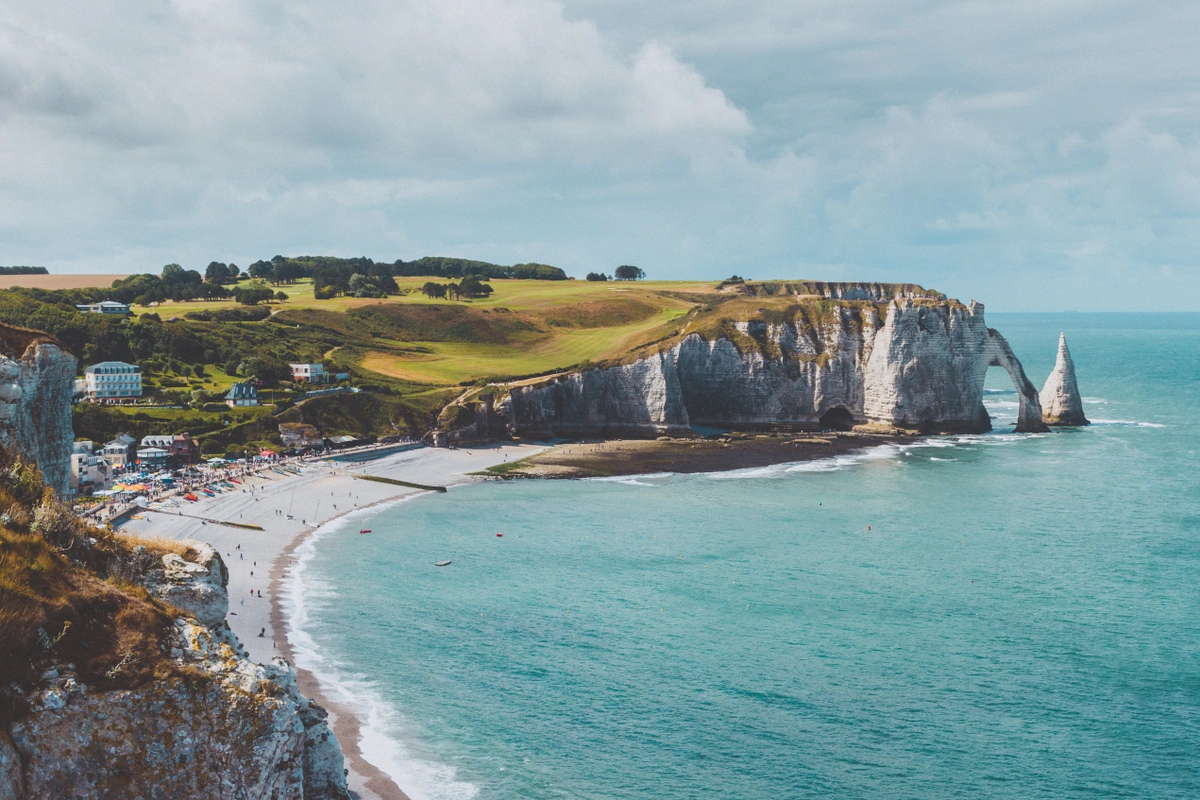Have a question?


November 27, 2022
Ready to hop on the next flight to France? Or maybe you’re only just ready to start planning your first trip to France and hopping on a flight is still a ways off. No matter the stage you are at in your planning, here is just about everything you need to know to travel to France as an American!
As travel increases now that borders are open and billions are fully vaccinated, things are getting busy! Everyone who had to postpone their trip to see the glittering Eiffel Tower during the peak of COVID, or who sat at home for months on end plotting their escape to fall head over heels in love with France, is now out there doing it all. They are booking up hotel rooms, tables at restaurants, and tours of gardens, museums, and palaces.

While you may want to leave some of your trips unplanned to see how you feel or what you stumbled upon, if there is anything you really want to do, you should absolutely have it booked in advance.
As of August 1, 2022, there are no longer any COVID-related restrictions on travel to France from the US. This means that regardless of vaccination status you no longer have to show a negative test or provide a compelling reason to travel. However, as we have learned throughout these COVID years, the situation can and very well might change quickly, so while on your trip be sure to keep an eye on updates to make sure you remain in the clear!
There is a Level 2 Travel Advisory in place for France, which means that the US State Department recommends exercising increased caution when traveling to France due to terrorism and civil unrest.
While it is important to be aware of such recommendations made by the State Department, it’s also important to remember that nearly five million Americans traveled to France in 2019 (the peak of travel pre-COVID) almost without any incident at all, and generally, the number of Americans traveling to France remains high and incidents remain low.
If you do want to stay up to date with any new alerts or changes to France’s status you can sign up for STEP notifications (it’s free!), which are email updates that come from the US State Department and keep you in the loop about any major events that may threaten your safety or security while in France.
Most likely as a traveler with a US passport headed to France, you will not need to show anything other than your passport. The border agents will likely ask you a few basic questions. Probably:
And if they are happy with your answers, confirming that you’re just there for short-term tourism, you’ll be on your way.
They may ask you follow-ups like where are you staying, what are your plans, etc. They’re really just checking your vibe – if you’re sure and casual about your answers you’ll be all good. You don’t need to rehearse all of this, just answer honestly!
Keep in mind though, they do have the right to ask for further information. Most importantly, proof of onward travel out of France and proof of sufficient funds to cover the cost of your stay.
Yes! France is very safe for the world today. There are unfortunately common petty crimes like pickpocketing and scams, especially in heavily touristy areas like around the Eiffel Tower, but violent crimes are very low and unlikely, and tourists are not normally specifically targeted.
You do not need a visa to enter France as an American. That being said, the stamp in your passport acts as a visa on arrival of sorts, and it shows the authorities when you entered France, or, more importantly, the Schengen Zone. That stamp gives you the approval to spend up to 90 of the next 180 days in the zone.
One important law of note is that authorities have the right to ask you for your identification at any time without cause, so you should always carry something on you (if you fail to present it immediately you have four hours to bring identification to a local station). This does not, though, have to be your passport, it can be any photo ID issued by your government.
There are a few other laws that you may not be used to in the US. Full face coverings, including full burqas, are outlawed in France, and wearing one could result in quite a high fine.
Drones are outlawed in Paris, so don’t plan on flying yours during your time in the capital. And taking pictures of police anywhere in the country is illegal.
All drugs are against the law but open containers are fine to have (think picnic on the grass with a bottle of wine – one of the most quintessentially French things to add to your perfect itinerary) in the vast majority of the country, but there are certain areas of Paris where at certain hours of the day open containers are banned – these streets will likely be marked with clearly visible signage so you’ll have no excuse should a police catch you.
Heading to France from the US will definitely be a dream. Make sure you’ve got the perfect plan for things to do in your back pocket and head out knowing you’ve got all your essentials.
How should we contact you?
Call
Thank you! We'll get back to you as soon as possible!
Click to register and track your question!
If you would like to follow up with us:
+1 (855) 782-3006